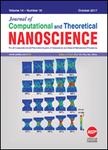版权所有:内蒙古大学图书馆 技术提供:维普资讯• 智图
内蒙古自治区呼和浩特市赛罕区大学西街235号 邮编: 010021

作者机构:Univ Missouri Real Time Power & Intelligent Syst Lab Dept Elect & Comp Engn Rolla MO 65409 USA
出 版 物:《JOURNAL OF COMPUTATIONAL AND THEORETICAL NANOSCIENCE》 (计算与理论纳米科学杂志)
年 卷 期:2005年第2卷第4期
页 面:561-568页
核心收录:
学科分类:07[理学] 0805[工学-材料科学与工程(可授工学、理学学位)] 0703[理学-化学] 0702[理学-物理学]
主 题:Quantum-Inspired Evolutionary Algorithms Particle Swarm Optimization Multilayer Perceptron Simultaneous Recurrent Neural Network binary training algorithms
摘 要:This paper presents a comparison of two machine learning methods inspired by nano-scale and macro-scale natural processes and related to distributed intelligence, namely Quantum-Inspired Evolutionary Algorithm (QEA) and Binary Particle Swarm Optimization (BPSO). QEA is based on the concepts and principles of Quantum Computing, such as a quantum bit (Q-bit) and superposition of states. QEA uses a Q-bit for the probabilistic representation and a Q-bit individual as a string of Q-bits. A modified QEA with less memory requirements is also presented. The effectiveness of these algorithms in binary search space are compared for training neural networks. Results are presented for Multilayer Perceptrons (MLPs) and Simultaneous Recurrent Neural Networks (SRNs). For neural networks trained on complex nonlinear functions, the QEA based algorithms achieve convergence faster than BPSO.